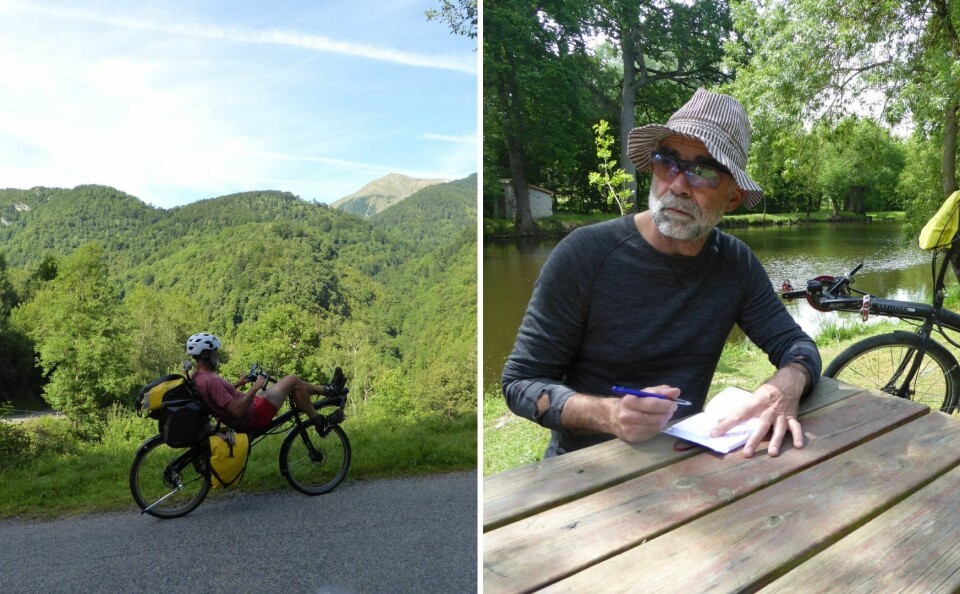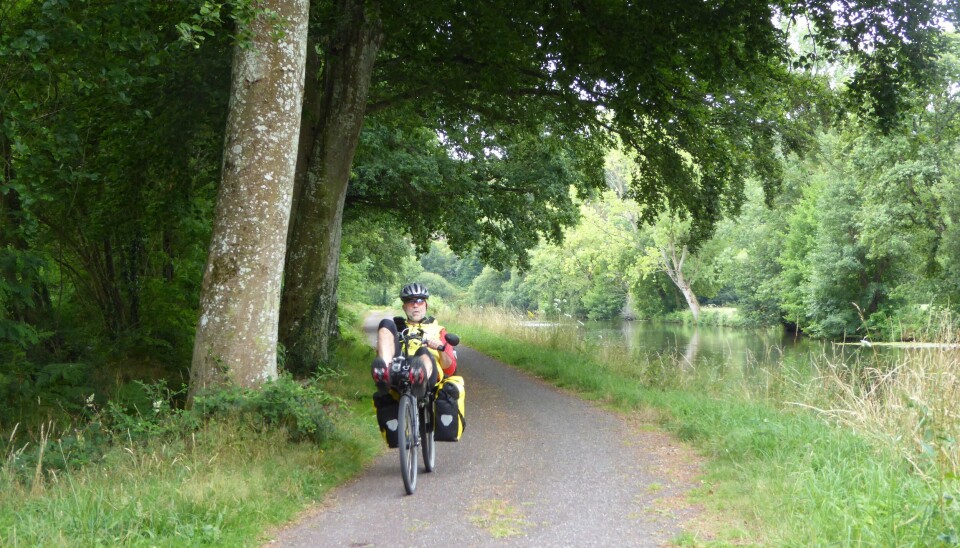-
Paris group promises help to ‘live your best life’
WICE is a vibrant English-speaking community offering classes, workshops, and social events to help expats integrate and thrive
-
See inside rare Le Corbusier villa for sale in the Var
Villa l’Artaude blends modernist architecture with Mediterranean charm
-
Why I love where I live... in Nantes
Reader Sue Alouche, 66, and her French husband set up 'Knowing Nantes', a network for the anglophone community in the city
‘Hand-delivering letters across France is slow and full of love’
The retiree dubbed The Humane Postman shares what delivering ‘important but not urgent’ messages has taught him about humanity

A letter from a grandmother to her granddaughter, a hand extended to a former classmate not spoken to for over a decade… These are some of the messages Vincent Berthelot has hand-delivered, often taking several months.
Like any good postman, he does not look inside, but sometimes people are eager to share.
“They are always love letters,” he said. “Love in every sense of the word. Love for humanity.”
First trip was 6,000km
It all started when Mr Berthelot (64) retired from teaching in 2015, and wanted to mark the transition with a cycle trip.
“The problem was, I didn’t know where. I’ve always thought the path was more interesting than the destination, so I decided not to decide where to go.”
He came up with the idea to ask the people around him if they had any important messages to send, starting with friends and family, colleagues, the local baker…
His first round took him to the four corners of France across 6,000km, from his home in Redon (Brittany) to Lille, Strasbourg, Marseille and the Pyrenees, all the while on a recumbent bicycle.
It took him 93 days.

Read more: Cyclists who made huge GPS dinosaur on France trip break world record
Hand-delivered letters have greater impact
He believes Brittany is a “privileged area in terms of human relations”, which helped him to amass the letters.
Maëla Palvadeau, 36, has known Mr Berthelot since she was a student at the middle school where he taught.
When he was asking around for letters, she was pregnant with her first child, and decided to write to her in-laws, who live in Valence (Drôme).
“My partner’s father is very private and rarely shows his emotions,” she said – but he ended up writing back.
“I thought it was important to open up a dialogue in the relationship between my partner and his father.
“They realised they could tell each other things. I knew that once we had a child, he would have to open up. I didn’t want him to have the same kind of relationship with his child as he had with his dad – slightly distant.”
She says hand-delivered letters have a greater impact for the recipient.
“You don’t write just anything in a letter like that. So it has a weight, which also comes from the personal encounter.”
Another trip followed in 2017, between the Loire, Rhône and Pyrenees, before a third voyage took him to Switzerland. This time, Ms Palvadeau sent a long letter to her sister.
“Having children made me think back to my own past. It was a chance to tell her what she means to me.”
‘People have depths of hospitality we can’t imagine’
Mr Berthelot has since undertaken a number of shorter trips, and is hoping to plan another long trip soon. He has delivered at least 300 messages.
It is the human interactions that keep him coming back. “Each person you meet is a veritable novel,” he said.
“Globally, places are more welcoming than we are told. We often hear that people are afraid, and it’s true, but they also have depths of hospitality that we can’t imagine.
“Maybe we need to reawaken them sometimes, and invite them to operate in that mode, rather than in isolation and fear of the other. I’m an ardent defender of conviviality.”
‘The first letters were not easy’
Unlocking that side of people is a skill he had to learn.
“The first letters were not easy. I was like a clown or a Lewis Carroll character bursting into their daily lives but I used to do a lot of theatre, and realised I had to construct a character and stick to it. That immediately made interactions easier.
“Even when things were a bit tense, it bothered me less, because it was the character people were reacting to, not me. But quickly, the ice melts away, and people play along.
“At the start, everybody is taken aback, and this can last for a long or short time, depending on the person, but it usually goes away.
“Although there have been encounters where it didn’t go away, and often they would contact me later to apologise for not having been receptive, because they couldn’t get past this stupefaction.”
For his first trip, he spent half the nights sleeping in his tent and the rest of the time with family, in a hotel, or with recipients of the messages who invited him to stay. These days, he no longer brings a tent, because people usually offer to put him up.
Read more: These are the rules for wild camping in France
He now has 240 people delivering letters
He has written two books about his time on the road, and been the subject of a documentary, entitled Le Facteur Humain (The Humane Postman).
In 2020, he created the Agence des Facteurs Humains, which now has 240 people delivering messages during slow, low-carbon journeys.
Letter-writers send in their location and the desired recipient’s, and the ‘agency’ adds them to a database that the volunteers can search when planning an itinerary.
Their routes have taken them to Iceland and Cuba, and one couple recently began a three-year walk from La Rochelle to India.
This interactive map shows tracking updates of the letters' journeys.
“It is a response to a society that wants everything as quickly as possible,” Mr Berthelot said.
“It is a way of saying there are other ways to be happy. You don’t have to go and see the Mont-Saint-Michel. There is as much happiness to be found visiting a friend’s village in the middle of the Pyrenees.”
If you would like to send or deliver a message, email facteur.humain@orange.fr
Related articles
Cycling in France: Bike festivals and where to cycle this summer
French cycling: France's historical passion for the bicycle
What is in the €2bn plan to promote cycling and bike lanes in France?
























